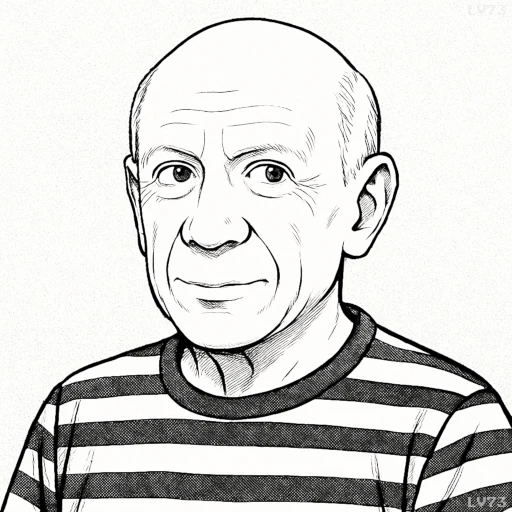“What is a face, really? Its own photo? Its make-up? Or is it a face as painted by such or such painter? That which is in front? Inside? Behind? And the rest? Doesn’t everyone look at himself in his own particular way? Deformations simply do not exist.”

- October 25, 1881 – April 8, 1973
- Born in Spain
- Painter, sculptor, printmaker
table of contents
Quote
“What is a face, really? Its own photo? Its make-up? Or is it a face as painted by such or such painter? That which is in front? Inside? Behind? And the rest? Doesn’t everyone look at himself in his own particular way? Deformations simply do not exist.”
Explanation
In this profound and introspective quote, Picasso challenges the very concept of identity and how it is represented. He questions whether a face is merely the image we see in a photograph, the external appearance with makeup, or the interpretation of it through an artist’s lens, suggesting that the face is not just a fixed, physical entity. Rather, it’s an elusive and dynamic concept that varies depending on who is observing it. Picasso’s work often delved into distorting familiar forms to reveal a multidimensional view—a philosophy that can be seen in his Cubist portraits, where a face is not seen from a single angle but from multiple perspectives at once. Through this, he implies that the true self cannot be captured by one fixed image but is ever-changing, both externally and internally.
The quote also touches on the subjectivity of perception. Picasso argues that everyone sees themselves—and others—in a unique way, influenced by their personal experiences, beliefs, and emotions. This is particularly relevant in modern times, where social media, photography, and self-representation have created an environment in which people often present themselves in ways that are filtered, sometimes presenting only one side of their identity. Picasso’s words remind us that our self-perception is fluid and cannot be confined to any single representation, be it an image or a social persona. The quote speaks to the human tendency to view ourselves through our own lens, one that is shaped by our internal world.
An example of this can be seen in how artists like Frida Kahlo explored their own faces in their art, often using self-portraiture as a means to explore their identity, pain, and emotional complexities. Similarly, modern-day selfie culture illustrates Picasso’s point: how a person chooses to represent themselves through photographs may not reflect their true inner self, but rather the version they wish to present to the world. In this sense, Picasso suggests that all representations of the face are deformations, not in the sense of being incorrect, but as subjective interpretations of a constantly evolving reality.
Would you like to share your impressions or related stories about this quote in the comments section?
